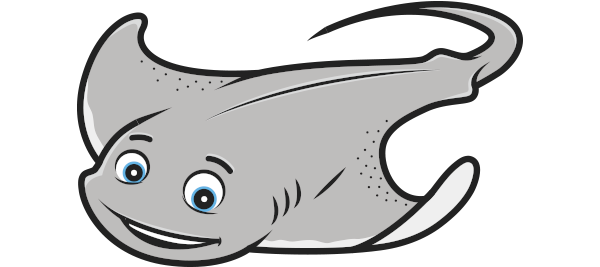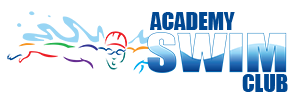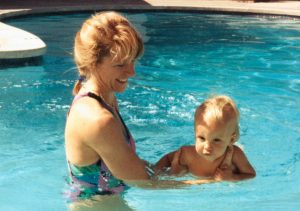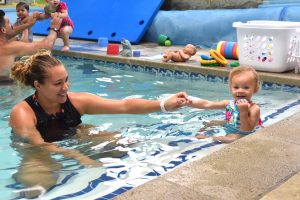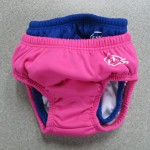You did it!
You have officially taken the first step to ensuring your child has a safe, healthy future ahead. There are so many benefits of learning to swim, and who better to teach it to your baby than you! But don’t you worry, our highly trained, educated and professional instructors will teach you exactly how to do it.
Before you start your swim journey together, below is the history of Baby Swim in our Swim School, along with knowledgeable information and a pre-lesson checklist. Enjoy!
History of Baby Swim
Academy Swim Club has been teaching parent/baby classes since opening in the Santa Clarita Valley in 1984. The owner, Nikki Miller, has been teaching since 1976. Through her experience with children and infants in water, and her educational background in psychology and child development, she has implemented what she feels is the most loving and effective way of teaching infants water awareness and increased survival skills. She is certified in infant teaching and has taught other swim school instructors in the U.S. through the United States Swim School Association.
We feel the best teachers for your child is you. You know your child’s personality and fears, and can best judge your child’s special needs as the class progresses. And who can love your child and give him/her the confidence needed better than you?! So we take each class and teach you several different skills, one at a time, until you can put them together in sequence with your infant. Yes, they can and do learn, faster than you think! It is also a wonderful bonding experience for parents, especially with those children who are locomoting on land and want nothing to do with being held. Our water temperature is 90˚- 92˚, keeping babies and parents comfortable throughout the lessons.
Infant swimming in the United States is relatively new, but studies conducted in Russia, Germany and Australia have taught us many things. Russian studies resulted in substantial health and developmental advantages of swimming babies. In effect, the theory is this: Babies do not move about or actively participate in their environment until they can crawl, at about 6-8 months. All newborns have a swimming reflex, with synchronized arm, leg and torso movement, which begins to dissipate at about 4-6 months. When infants are allowed to swim before they crawl, they exercise their physical development and muscle tone, moving toxins out of the body, making them healthier. They also are able to explore, stimulating curiosity and independence, and leading to higher confidence and self-esteem. Exploration in the water teaches them their own capabilities and limitations, and they become more alert and aware of their environment. These qualities lead to greater social adjustment as well. Although these studies have not been clinically proven in the United States, we have seen evidence of them in our program alone, and this has been confirmed by other swim schools across the country.
Before Your First Lesson
You, the parent, are our students. We teach several skills each lesson and we encourage you to practice these skills with your child, but more importantly, we want your child to go at his or her own pace, and we want you to be comfortable. At the end of your set of lessons, we want to be sure that you know the skills to teach and how to teach them so that you are prepared when your child is ready to learn.
- Bring a large towel for both yourself and bundling up your infant after the lesson. Our water is quite warm, but getting out can feel cool, at times.
- Your child will also need to double diaper. We have many to choose from at our school starting at $8, and they can be used over and over again. Regular diapers are forbidden in our pool, as they get too bulky with water. Disposable swim diapers are not Health Department approved!
- If your child has sensitive skin, you may rinse off any chlorine residuals in the shower, after the lesson. We recommend using products with EDTA, which neutralizes chlorine on contact.
- If your child has a problem with ear infections, we have very good earplugs that tremendously decrease the possibility of water in the ears, but you should also consult your pediatrician.
- We ask that you not bring any child with diarrhea into our pool. Wait until the stool is solid before resuming lessons. However, you are welcome to sit on our deck to learn the lessons taught that day.
- If your child has any health problems, please get consent from your pediatrician before the onset of lessons. We’ve taught many students with special needs, but since each child is different, we prefer you speak about your needs with those who know your child best.
- Please do not feed your child any meat or dairy products 2 hours before the lesson, unless they are only on milk. Juice or fruits are good snacks before the lesson.
New students to our Parent & Me Program must commit to 16 lessons so that they have a foundation of learning from which to build upon. We issue No Refunds, but if you pull out of lessons for any reason with lessons already paid for, we will maintain a credit for you. Early withdrawals will incur a $125 early termination fee per child.
If you have any questions please do not hesitate to call. We look forward to seeing you on your first lesson!
 Two reusable, Health Dept approved, cloth swim diapers are mandatory.
Two reusable, Health Dept approved, cloth swim diapers are mandatory.
WARNING! Do not think that your infant will be water “safe” after these lessons, or ever. With circumstance and judgment involved, a child is NEVER water safe. We only hope to increase the chance of survival in an emergency, but most of all, to increase the child’s love, appreciation and respect for water.
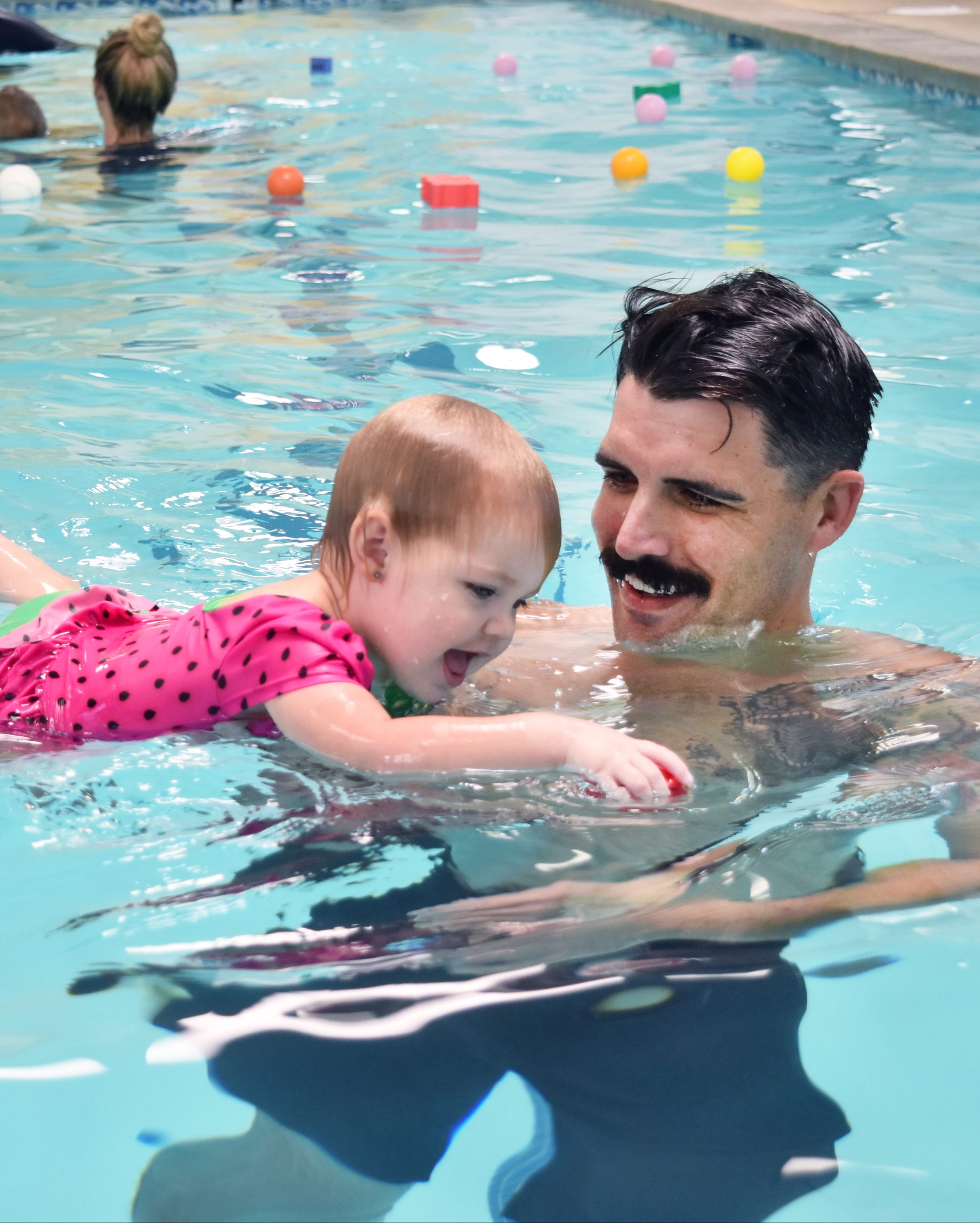
Water Babies are Advanced!
A study conducted from 2009 – 2012, found that babies and toddlers who participated in Swim Lessons are hitting milestones ahead of schedule and before their non-swimming peers. The swimmers not only excel in physical activities, but also in areas of cognitive and language development…
Early Years Swim Study by Griffith Education
Guarantee
